
Agenda
- What is AI
- Building Blocks of AI
- History of AI
- Machine Learning
- Types of Machine Learning
- Big Data
- Use Cases of AI and ML
- Demo of a AI use case
What AI brings to mind...
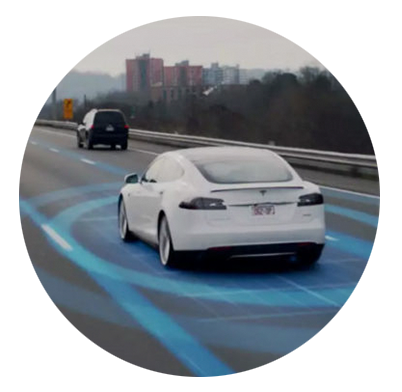
|

|

|
| Self-Driving Cars | Credit Card Fraud Detection | Face Recognition |
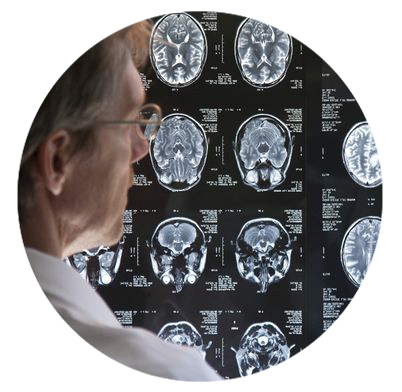
|

|

|
| Early Detection of Terminal Illnesses | Smart Voice Assistant | Robots |
Wait..What?
AI on the cloud?
Deep Learning?
Watson?
Classifier?
Don't worry..We got you covered
For so long, Artificial Intelligence (AI) has been just a tool that helps solving simple problems and performing specific tasks.
This was achieved through programming and declaring the steps a computer should follow to achieve the task.
But lately, the concepts of Machine Learning and Deep Learning are starting to show so much potential, and are promising to disrupt many industries and change the future.
AI Landscape
Evolution of AI over the last decades
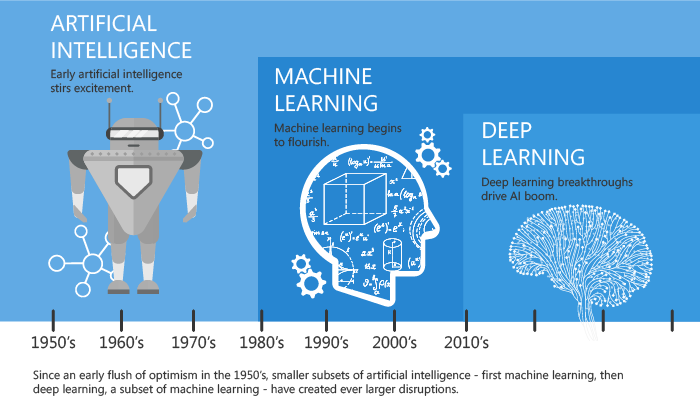
http://bisintek.com/science/2017/12/27/knowing-basic-artificial-intelligence/
Let's simplify this even more
Machine Learning and Deep Learning borrow a lot from biology, how our brains are wired and the way we learn as humans.
So let's take a quick look on that first.
As humans, we are born with a blank slate (somewhat).
We learn through input data we receive from our environment and our senses.

We incorporate this input data with the outcome to form experiences and store them in our memory.
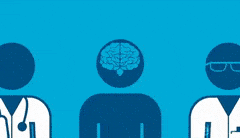
Experiences that are repeated and accompanied by some form of reward or punishment create a neural pathway in our brains.
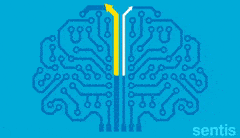
Neural Pathways make it easier for the brain to retreive past experiences in new, similar situations and use what it previously learned.
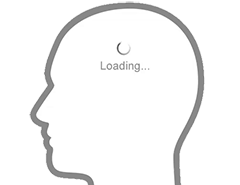
https://www.youtube.com/watch?v=ELpfYCZa87g
We found a way to make machines learn the same way...
Machine Learning
+ Experience Task
Performance
Task
Performance
What does a Machine do with the Data?
And how does it actually learn?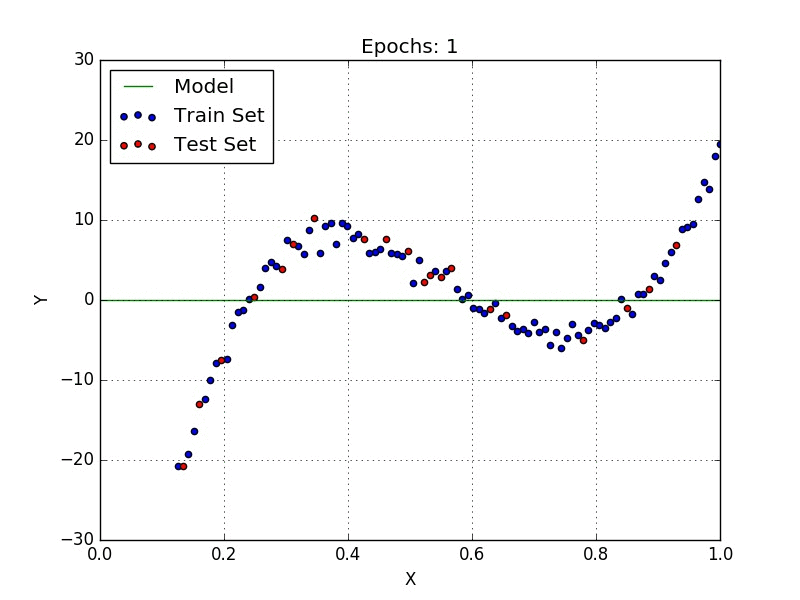
This process is called developing a Model* from the data, and it is up to the Machine Learning Algorithm* to find that Model
*Model: is a representation of a real-world process. It helps explain a system, study the effects of different components, and to make predictions about future behaviour
*Algorithm: a set of steps to follow by a program to solve a problem
https://www.cs.toronto.edu/~frossard/post/tensorflow/How does the Machine learn to get the best Model?
Through configurable parameters
Let's take an example
Below is a simple Linear Regression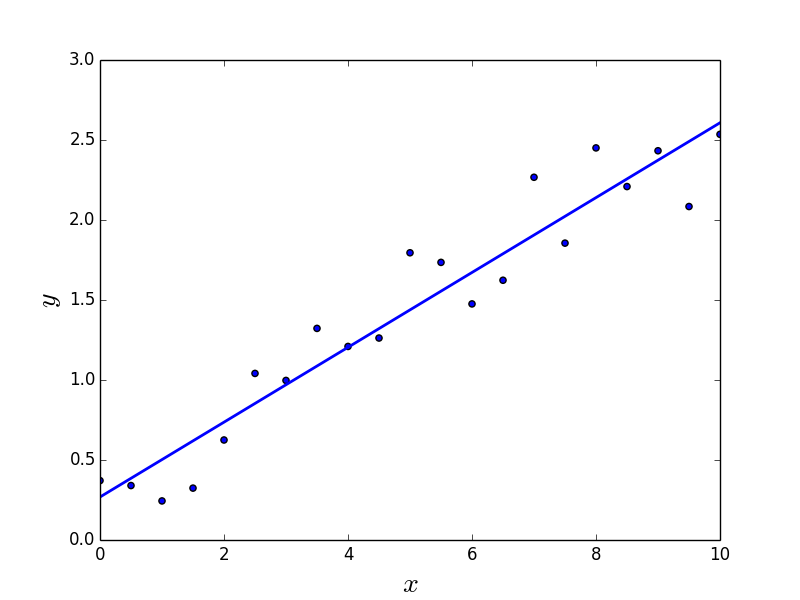
This model can be represented as
Y = aX + b
where "a" is the slope and "b" is the intercept.
Both "a" and "b" are Configurable Parameters that the learning algorithm can tune to find the best ModelHow does a Learning Algorithm know it is correct?
We measure its Performance by calculating a Cost Function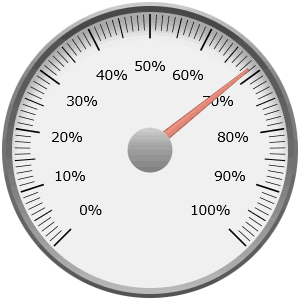
Simply put, it is a way to estimate how wrong is the Model we have now in terms of estimating the relationship between the input (X) and the output (Y)
The Learning Algorithm's mission is to find Parameters that minimize the cost function
http://bestanimations.com/Science/Science.html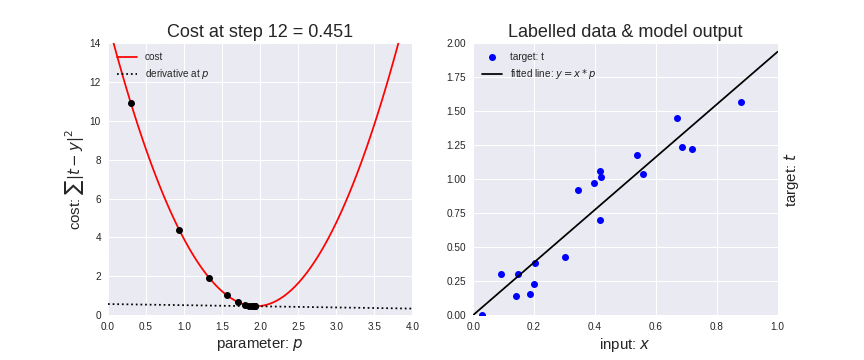
https://medium.com/onfido-tech/machine-learning-101-be2e0a86c96a
This process is called Model Training
By the end of this process, we have a model that describes relationships in our data, now we can use that model to predict an output (that we don't know) from new input (future data)
That's the essence of AI
What problems can Machine Learning solve?
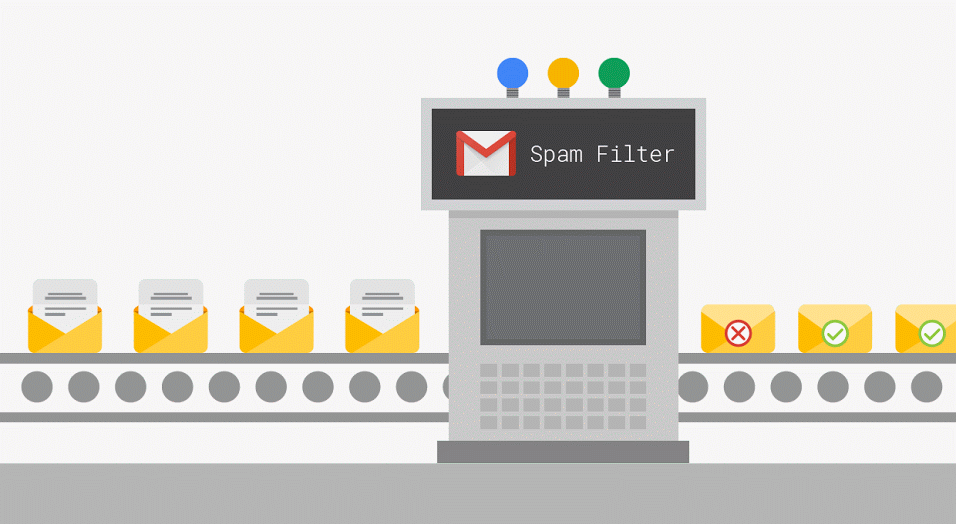
Spam Filteration

Product Recommendation
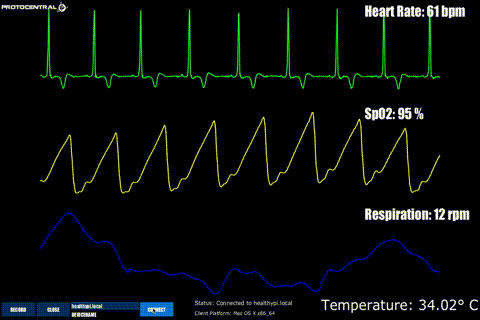
Medical Diagnosis

Targeted Marketing
So Machine Learning is only able to solve very simple problems..
What about the more complex tasks like
- Machine Vision,
- Natural Language Understanding
and all those things that make AI so cool?
It needs advanced feature engineering skills for such problems..is there an alternative?
Let's take this to another level..
Deep learning
Deep Learning
+ Experience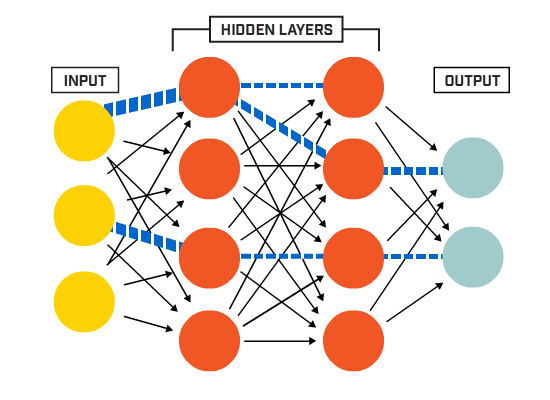 Task
Performance
Task
Performance
Let's Take an Example
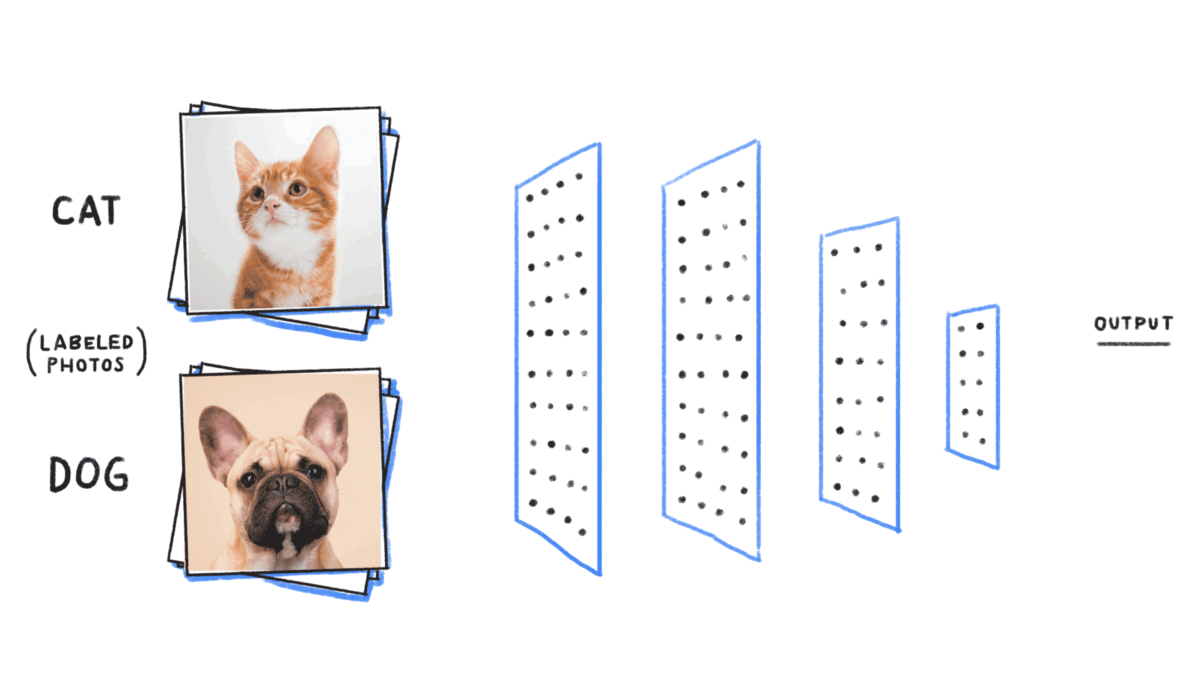
https://becominghuman.ai/building-an-image-classifier-using-deep-learning-in-python-totally-from-a-beginners-perspective-be8dbaf22dd8
Building block of a Neural Network
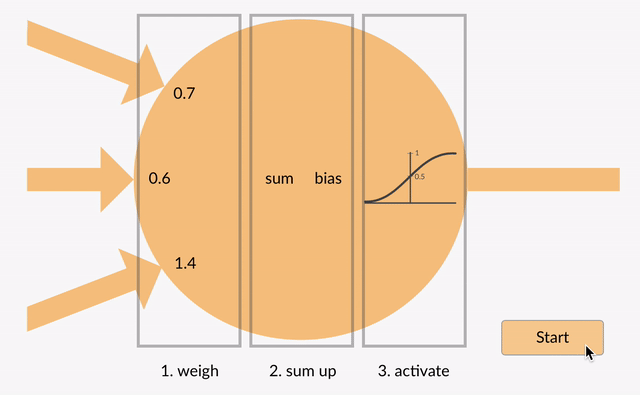
https://harishnarayanan.org/writing/artistic-style-transfer/
Comparing Artificial Neuron to a Human Neuron
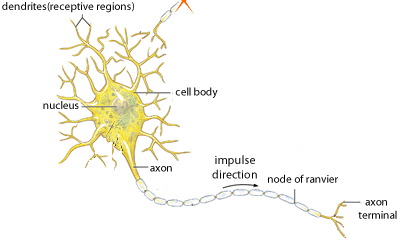
https://medium.com/typeme/lets-code-a-neural-network-from-scratch-part-1-24f0a30d7d62
Stacking Many Neurons Together

~100-1,000 Trillion synapses
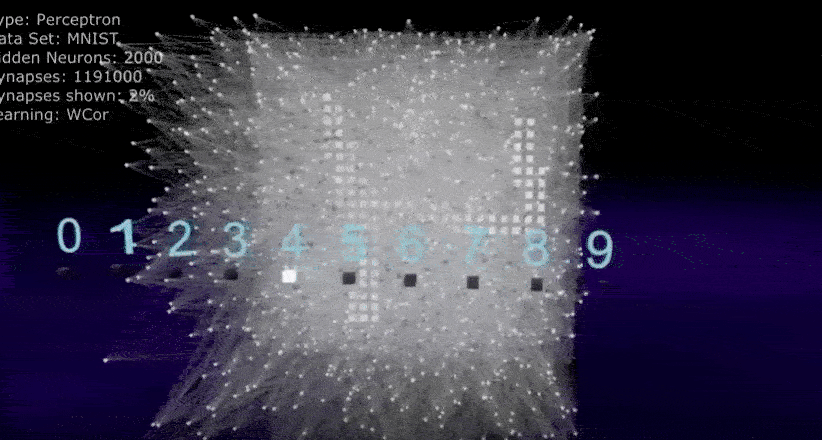
~1-10 Billion Artificial Neurons
http://neuron.com.au/ https://www.reddit.com/r/gifs/comments/6elloq/neural_network_3d_simulation/
What's special about Deep Learning?
It can automatically detect millions of features that can be very subtle, but combined, they can be the bases of a machine's understanding of unstructured data like Images and Sound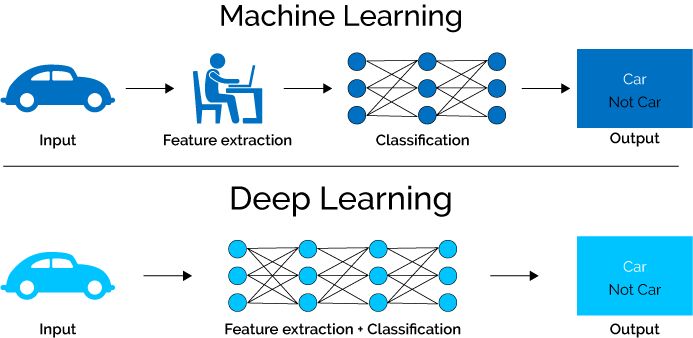
Ok, but how does a Neural Network actually learn?
https://medium.com/swlh/ill-tell-you-why-deep-learning-is-so-popular-and-in-demand-5aca72628780Backpropagation
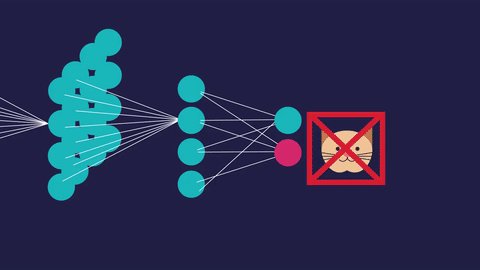
http://www.fictiontofact.com/technology/ai/ai-detectives-are-cracking-open-the-black-box-of-deep-learning/
What Problems Can be Solved with ML and DL?
Anything that falls under the following categories
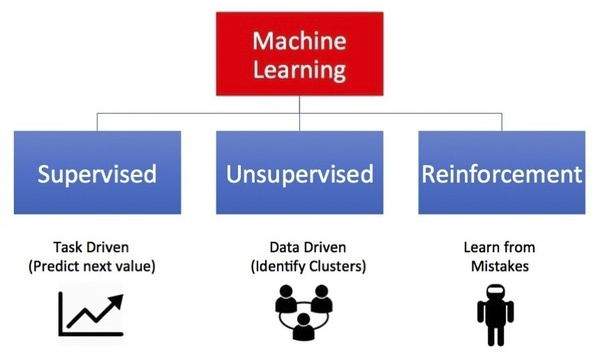
https://nowenlightenme.com/2018/03/18/types-of-machine-learning/
Supervised Learning
Data + Labels (What this data means)
Categorical Output
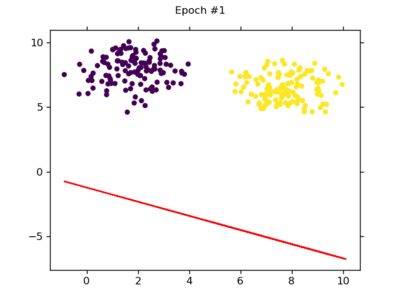
Examples:
- Spam Filteration
- Image Classification
Continuous Output
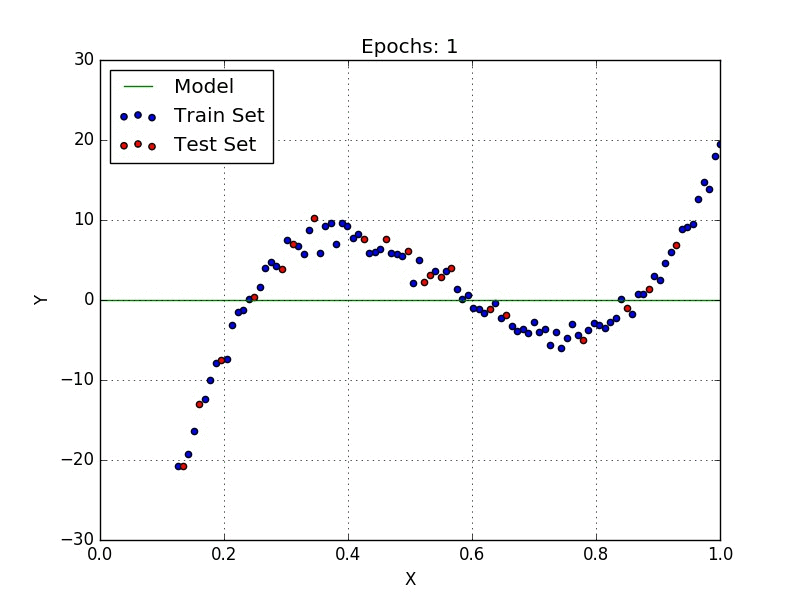
Examples:
- Predicting Stock Price
- Predicting Arrival Times in Navigation Apps
Unsupervised Learning
Data + No Labels
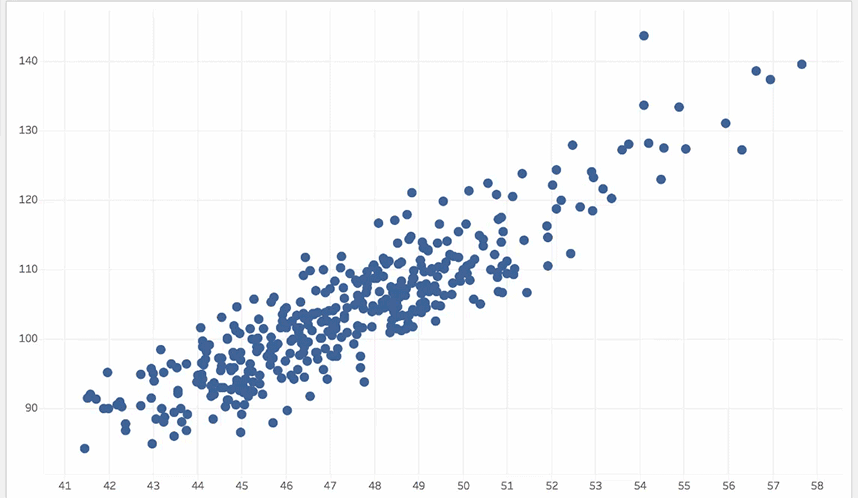
Examples:
- Customer Segmentation
- Targeted Marketing
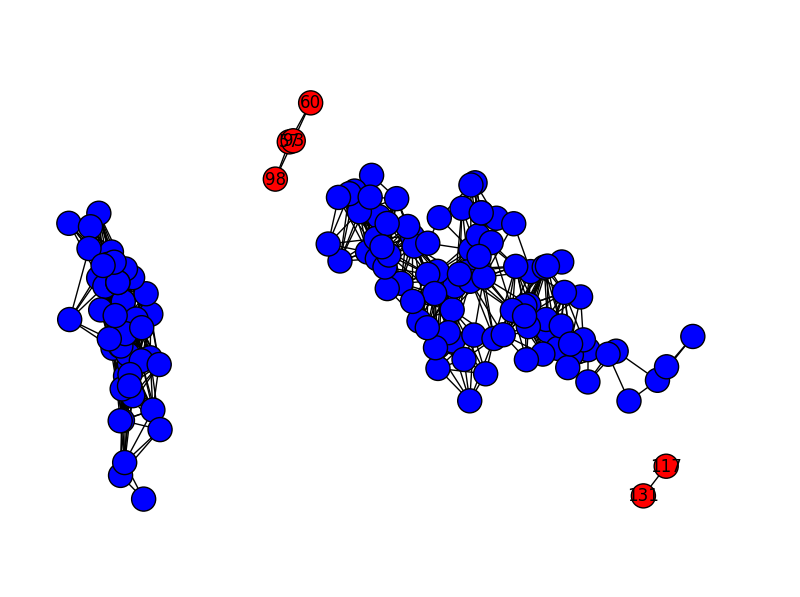
Examples:
- Unusual Behaviour in surveillance cameras
- Sensor faults or unusual signals
Reinforcement Learning
Learning Algorithm has memory. Learns from Experience & Mistakes
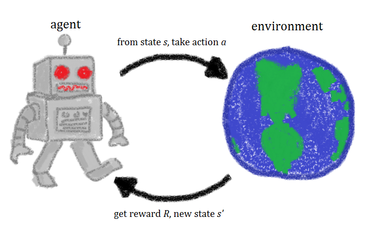
https://simple.wikipedia.org/wiki/Reinforcement_learning
This is now..
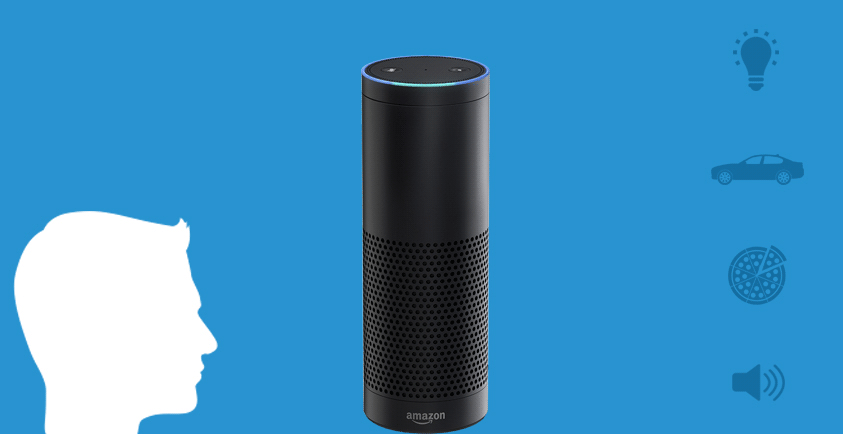
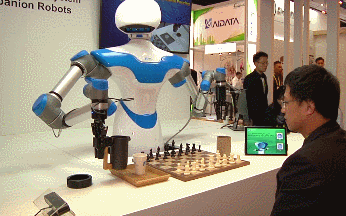
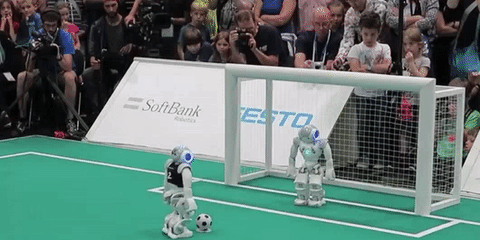
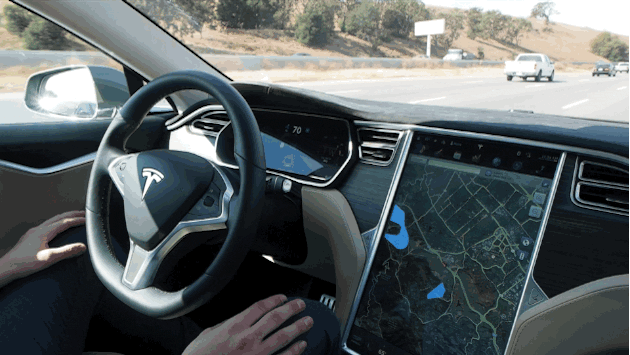
Imagine tomorrow's possibilities..
Can we reach General Artificial Intelligence in the near future..?
Thank You!
https://youtu.be/_Xcmh1LQB9I